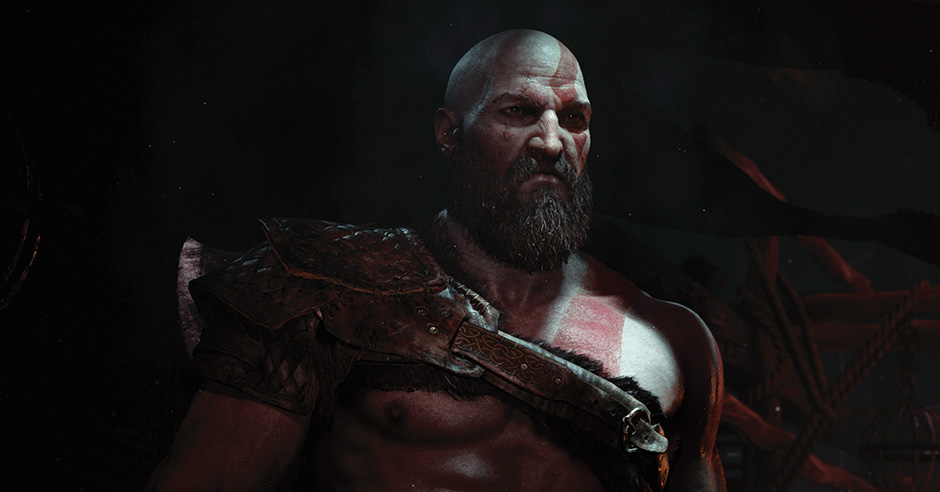Let’s face it, we as God of War players have spilled a lot of blood the past 11 years as we accompanied Kratos on his epic quest for vengeance, which may or may not have become a quest for genocide along the way. But years later, after Olympus has fallen and Ascension has shown us that the franchise may have caused some fatigue, is the new God of War the fresh start that the franchise needs and deserves?
Stepping back towards the original trilogy, the franchise often managed to outweigh its weaknesses by showcasing its strengths tenfold, creating experiences that were simply too immersive and thrilling to let its faults get the best of them. But when is it time to lose the “don’t fix what’s broken” mentality when it comes to maintaining a long-running franchise? Do you ride the waves as you await the reactions of your fanbase, or do you take initiative, by reinventing the wheel in the vision of something that’ll speak to new and old fans? Taking the second strategy to heart, Santa Monica Studios is bringing us a new and renewed take on the God of War universe, which might be the fresh start that many might not even realise the franchise needed. Looking back at the original trilogy and its trio of prequels, the formula of the franchise has always been pretty straightforward when it came to gameplay and storytelling. Most of the franchise was received with great acclaim or generally favorable reviews, but by the time Ascension came out it was clear that after killing the entire Pantheon of Greek gods in God of War III, the franchise needed a new twist to keep it alive in the long run. Now, the idea of a move to a different mythology is a great move in regards to thematic diversity, but what does such a change ultimately do on its own? Do you have Kratos kill another civilisation of mythical beings or do you change-up the pace?
Looking back at the original trilogy and its trio of prequels, the formula of the franchise has always been pretty straightforward when it came to gameplay and storytelling. Most of the franchise was received with great acclaim or generally favorable reviews, but by the time Ascension came out it was clear that after killing the entire Pantheon of Greek gods in God of War III, the franchise needed a new twist to keep it alive in the long run. Now, the idea of a move to a different mythology is a great move in regards to thematic diversity, but what does such a change ultimately do on its own? Do you have Kratos kill another civilisation of mythical beings or do you change-up the pace?
First and foremost, one of the most important factors of this creative reboot is Kratos. Whilst Kratos is arguably one of the most iconic and memorable PlayStation characters, it’s hard to argue that the storytelling of the franchise was often lacking in regards to making the God of War a sympathetic character that we could ultimately relate to, though that is something many deemed impossible looking at the rage-filled saga so far. But in a market that has matured with titles such as The Last of Us and Uncharted 4, can even the testosterone-driven world of God of War make its move into the world of deeper and more mature storytelling? Kratos has always been obsessed with his quest for vengeance, but now his journey to Olympus has ended, what is left for him? Having moved to a new home in an entirely new environment, how much sense does it make to have him fall back to his old ways? As our new journey begins, Kratos has not only found a new way of life, but he’s responsible for someone else who he has to protect, which adds an entirely new dynamic not only the story and Kratos as a character, but to the gameplay mechanics themselves. This change is even bigger than you’d assume because the world of God of War is no longer about tearing down the walls around you from the world that’s taken everything from you, but defending your new life from the world that might be wanting to take it away from you once again. No longer is our protagonist a lone warrior that has nothing left to lose, but a father whose world is protected by the ax in his hands.
Kratos has always been obsessed with his quest for vengeance, but now his journey to Olympus has ended, what is left for him? Having moved to a new home in an entirely new environment, how much sense does it make to have him fall back to his old ways? As our new journey begins, Kratos has not only found a new way of life, but he’s responsible for someone else who he has to protect, which adds an entirely new dynamic not only the story and Kratos as a character, but to the gameplay mechanics themselves. This change is even bigger than you’d assume because the world of God of War is no longer about tearing down the walls around you from the world that’s taken everything from you, but defending your new life from the world that might be wanting to take it away from you once again. No longer is our protagonist a lone warrior that has nothing left to lose, but a father whose world is protected by the ax in his hands.
These new dynamics make it interesting to see what the new Norse world has in store for both the player and Kratos himself. As Santa Monica has stated, giant epic battles are a given as they are the most important factor within the franchise, but what is our relation to the conflict at hand? Obviously, there’s not a whole lot known about the story aside from the relationship between Kratos and his son, but what will our reasons be to cross paths with the Norse gods? We’re in an entirely new realm of possibilities because we’re no longer in a single linear path of vengeance, but an entirely new narrative that could still go a million different ways at this point. So, what does this change in regards to the core gameplay? A lot, seem to be afraid that the game will do away with the traditional gameplay of the franchise. As the developers have noted, God of War is still a game of epic battles, but exploration and storytelling have added a dimension that was previously unknown to the franchise. Games like Uncharted 4 and The Last of Us has shown us that there is room for breathing moments within the AAA-landscape, and taking notes from the likes of Naughty Dog and even smaller developers Santa Monica Studios is evolving the franchise into a story-driven tale that is worthy of its mythology. Epic battles with dozens of foes are what we come to see when playing God of War, but in a much more dense world of gameplay there’s seemingly so much more left for us to do.
So, what does this change in regards to the core gameplay? A lot, seem to be afraid that the game will do away with the traditional gameplay of the franchise. As the developers have noted, God of War is still a game of epic battles, but exploration and storytelling have added a dimension that was previously unknown to the franchise. Games like Uncharted 4 and The Last of Us has shown us that there is room for breathing moments within the AAA-landscape, and taking notes from the likes of Naughty Dog and even smaller developers Santa Monica Studios is evolving the franchise into a story-driven tale that is worthy of its mythology. Epic battles with dozens of foes are what we come to see when playing God of War, but in a much more dense world of gameplay there’s seemingly so much more left for us to do.
As a long-standing fan of the franchise, everything I’ve seen that looks different has been welcomed with my open arms, as whilst I’ve loved every single title up to this point, but perhaps it’s time for both the industry and players to learn that sometimes change is for the better, even if we don’t necessarily call for it beforehand. After all, is it better to change-up the pace before players get tired of your formula, or do you wait till it’s too late and change-up a sequel as part of damage control? There is so much left to be seen of this new installment within the God of War franchise, but there is so much left to tell based on the few minutes that’s been revealed so far, which doesn’t even begin to cover the possibilities this new thematic chapter of the franchise can offer us. Will we take on Odin and Thor, or are we working alongside the gods in this new world? Perhaps it’s a different story all together, which is one of the best aspects of the game so far, which is the fact that for the first time in the franchise we’re left so deeply in the dark when it comes to where the story will take us next.
There is so much left to be seen of this new installment within the God of War franchise, but there is so much left to tell based on the few minutes that’s been revealed so far, which doesn’t even begin to cover the possibilities this new thematic chapter of the franchise can offer us. Will we take on Odin and Thor, or are we working alongside the gods in this new world? Perhaps it’s a different story all together, which is one of the best aspects of the game so far, which is the fact that for the first time in the franchise we’re left so deeply in the dark when it comes to where the story will take us next.



